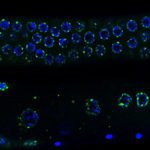Lien vers Pubmed [PMID] – 26536319
J. Acquir. Immune Defic. Syndr. 2015 Nov;
OBJECTIVE: The aim of the trial was to evaluate in patients under ART the effect of rosuvastatin on cellular and soluble markers of immune activation/inflammation, as well as to identify patients who better benefit from statin administration.
METHODS: IMEA-043-CESAR was a Phase II open-label pilot trial that enrolled patients under suppressive ART and CD4 <500/mm. Patients received rosuvastatin (20mg/d) for 12 weeks 3 months. The primary outcome was the variation at week 12 (W12) in the proportion of CD38+HLA-DR+CD8+T lymphocytes. Secondary outcomes included evolution of other markers of T-cell activation and of inflammatory biomarkers between baseline, W12 and W24.
RESULTS: Fifty patients were enrolled; endpoints were available for 43 patients. When considering all patients, the proportion of CD38+HLA-DR+CD8+ T cells did not significantly decline throughout the follow-up. However, the proportion of CD38+CD8+T cells significantly decreased at W12 (median percentage change of -22.2% (-32.3;+1.4)). Principal component analysis allowed identification of 3 groups of patients based on their baseline activation/inflammation profiles, one group with elevated levels of CD8 T-cell activation, a small group with high levels of systemic inflammation and low levels of T-cell activation. Half of the patients exhibited relatively low levels of inflammation and activation. The proportion of activated CD8 T cells significantly decreased only in the particular group of patients with high baseline CD8 T-cell activation.
CONCLUSION: This study shows that combining rosuvastatin with effective ART can result in a sustained decrease in CD8 T-cell activation and highlights the importance of identifying patients who can benefit from specific immunotherapeutic strategies.
